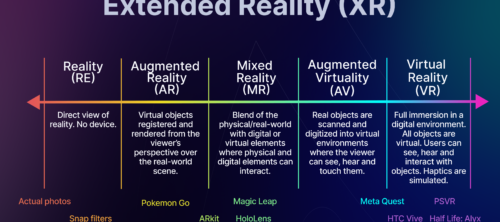
Exploring AI & Its Impact On Authenticity
If anybody out there told you they weren’t impressed by some of AI’s capabilities, they probably either don’t understand it or are joking around. Aside from the birth of the internet, nothing in the last 30 years has created such polarizing discussion, mesmeric possibilities, and volatile points of discussion in the way AI has.
We’re not saying that there isn’t a case for both sides here, and you don’t need to be an AI expert to understand the obvious pros and cons that this technology has ushered into the public domain over the last two years.
However, one of the more pressing matters has been AI’s growing influence on artistic authenticity in all fields, whether painting, writing, graphic design, comedy, original stories, or music production. Could we end up sleepwalking into a scenario where the whole ethos of unique human authenticity and creativity is relegated to the admittedly brilliant designs that many of these AI apps can now offer?
How Technology Has Enhanced Industry
The implementation of AI in a whole range of fields has led to significant innovations – whether it’s through healthcare, customer service, the world of finance, or casino gaming. Companies using AI analyze long-term customer patterns and how to provide more streamlined, tailored casino gaming platforms.
Online gambling companies have implemented the latest tech changes ahead of many other industries, including their initial switch to online platforms in the late 1990s and streaming live dealer games to the broader digital audience, which was considered a much riskier and more costly business strategy than the benefit that hindsight has granted us.
In today’s market, live casino games that use dealers are commonplace in the wider industry, with casinos offering dozens of different options and live tables. They command the largest market share and are considered the main driving force behind the critical decisions in the casino gaming industry regarding specific designs, future business strategies, and everything in between.
It remains to be seen whether AI will have a similar impact, and many experts within the casino gaming world believe it is unlikely. However, it’ll undoubtedly have an impact, whether through improving casino gaming algorithms or developing AI bots in a live dealer environment; expect to see some significant AI-driven enhancements within the next few years.
Addressing The Balance Between Authenticity & Technology
Ultimately, this is what it comes down to. While some artists, whether screenwriters, musicians, or other types of creatives, may besmirch the idea that AI is encroaching on their livelihood, there are also highly innovative technology pioneers who are making strides in developing these ingenious pieces of software. As with many technological advances over the last half-century, the answer is rarely an open-and-shut case where there’s an obvious right or wrong—AI is arguably the best example.
Last year, it became a big talking point during the US Writers Guild strike. With hushed talks and suggestions that some prominent film and TV companies are weighing the possibility of implementing AI suggestions into future film ideas, there’s been an understandable backlash from those who have written some of the blockbuster films and TV shows that millions enjoy.
AI will transform so much of our world; it can decipher long-form complex texts in seconds to suggest patient diagnostics and treatments for doctors. Some believe it could one day have the potential to fly planes, turn 2-dimensional images into 3-dimensional images, drive taxis, and even perform surgery.
Nobody suggests that this should come at the expense of some of the most talented creative minds in these artistic fields, nor is it a case of one existing at the expense of the other—but there must be a balance between technology and authenticity.
Keeping The Pulse On Consumer Appetite
The internet and digital technology have already transformed media and entertainment as we know it, rather than traditional TV routes. Media and entertainment are dominated by streaming services. Instead of TV shows having weekly release dates and generating new episodes and audiences as a slow drip feed, our binge culture and the instant gratification of entertainment have meant that the entire series is released in bulk.
Comedy has felt the impact too, and instead of comedians having routines that they chisel out for months and then hit the road, it’s again, instant gratification through social media shorts and clips, where if you’re not funny in five or six seconds, the person will swipe to the next option, have changed the whole dynamic and fabric of the business. So, while the argument against AI and it’s impact on authenticity is valid – it’s also about adapting to the new mediums that consumers use to obtain their art and engage with their favorite entertainers and performers.
Final Thoughts
If we end up in a position where AI designs all of our music, film, and ideas—whether twenty or fifty years down the line—this will invariably have a detrimental impact on society. However, there’s no point ignoring the elephant in the room – (the trillions pouring into AI) – and the fact that creatives will inevitably have to learn to live with it rather than against it will continue to cause friction and teething issues.
Bob Dylan once sang, “You better start swimming, or you’ll sink like a stone, for the times they are a-changin’” – and unfortunately, for those in creative industries, it’s about adapting to this technology, rather than actively working to deny its influence, because those that do will struggle.






